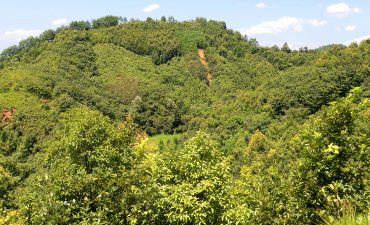The special value of intact forest ecosystems
Intact, primal forests are the key to mitigating climate change, limiting biodiversity loss and achieving many of the UN’s sustainability goals. 21 representatives of scientific institutions from Australia, Canada, Sweden, the USA and the UN summarize the results of more than 200 studies in the fields of forest, ecology and climate research in this metastudy.
The earth has lost 35% of its forest cover in the last three centuries. Of the remaining forests, 82% are severely degraded due to human use, i.e. ecologically devalued. In their metastudy, the authors prove that the remaining intact forests on earth still play a special role:
- They store more carbon above and below ground than degraded and managed forests in comparable regions.
- They regulate local and regional weather conditions: Above a degraded or cleared forest area, less water evaporates and fewer clouds form. As a result, less rain falls and the number of dry and hot days increases.
- They have a positive effect on water runoff, stabilize groundwater levels and preserve soil moisture.
- They conserve biodiversity: a higher forest species diversity as well as a higher intra-specific species diversity can be found in intact forests, species can spread better and adapt genetically.
- They serve as a refuge for species that have to flee from degraded areas.
- They are the habitat of many indigenous peoples and preserve their culture.
- They promote human health: no lung diseases due to forest fires as intact forests have a lower risk of forest fires. In addition, many natural medicinal substances are found only in intact forests.
- Intact forests have a higher resistance to storms, drought, avalanches, etc.
The differences in environmental impact between intact and degraded forests are clear. This shows that the greater the man-made changes in the forest, the lower the natural functions of the forest. In the article, the authors also highlight the importance of deforestation and reforestation, but focus on intact forests, as these have received little political attention in the past and the protection of these forests can be implemented relatively easily. For this reason, the authors also call for national and international action to better protect existing natural forests.
Comment
The study proves that intact untouched forest areas are unique in their functionality and play a fundamental role in the Earth’s ecosystem.
If these forests are disturbed by human influence, they can no longer fulfil their ecosystem properties 100 percent and thus have a negative impact on humans. Here, man must admit that, for example, reforestation measures can never reach the functional level of an intact forest. The importance of mitigating climate change, preserving biodiversity and being beneficial to human health must be put before short-term profit. This can only lead to the conclusion that it is indispensable to protect intact forest ecosystems on a long-term basis at national and international level and to make their significance better known to the public.
Source
James E. M. Watson and Tom Evans et al. (2018): The exceptional value of intact forest ecosystems, Nature Ecology & Evolution (2018), https://www.nature.com/articles/s41559-018-0490-x


